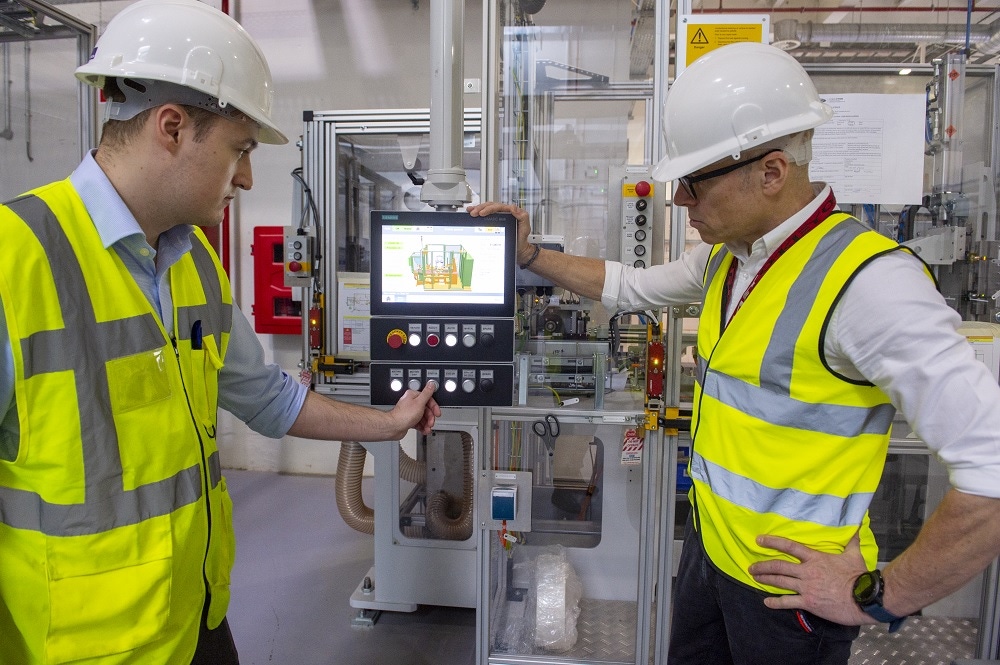Ford Bringing 5G Technology to EV Production
Ford says 5G will enhance the connectivity of welding machines in the manufacture of electric vehicles whose batteries and electric motors require about 1,000 welds.

Ford of Europe hopes to employ 5G technology to speed up production at its electric-vehicle plants.
Starting with its E:PriME (Electrified Powertrain in Manufacturing Engineering) facility on Ford’s Dunton Campus in the U.K., the automaker will install the Vodafone Business 5G solution hoping to overcome many of the issues surrounding wireless connectivity in industrial settings. The technology promises reduced delays, wider bandwidth, improved security, better reliability and faster deployment time.
By the time installation is completed this autumn, Ford says, the facility will have the fastest possible connectivity alongside its partners in a connectivity consortium which has a second network at welding research specialists TWI, based in Cambridge. The U.K. government has promised a £65 million ($80.5 million) investment into nine consortia harnessing the potential of 5G.
Both sites’ connected equipment is expected to offer real-time control, analysis and remote expert support, ensuring new manufacturing processes are shop floor-ready.
While cybersecurity concerns remain over Chinese telecom giant Huawei’s involvement in current 5G networks, Vodafone pledged in February to strip out all the Chinese company’s technology from its own core networks at a cost of €200 million ($224 million).
Ford says it now will focus on the connectivity of the welding machines in the manufacture of electric vehicles whose batteries and electric motors require about 1,000 welds. For a single EV, this could generate more than a half a million pieces of data every minute, so fast, reliable, high-capacity data capture and analysis will be a significant requirement.
Connecting the data with experts, such as TWI, and manufacturers, is critical if processes are to develop at the same rate as these innovative products require.
Chris White, Ford’s 5G EM project lead, says: “Connecting today’s shop floor requires significant time and investment. Present technology can be the limiting factor in reconfiguring and deploying next-gen manufacturing systems. 5G presents the opportunity to transform the speed of launch and flexibility of present manufacturing facilities, moving us towards tomorrow’s plants connected to remote expert support and artificial intelligence.”
About the Author(s)
You May Also Like


_(2).jpg?width=700&auto=webp&quality=80&disable=upscale)


